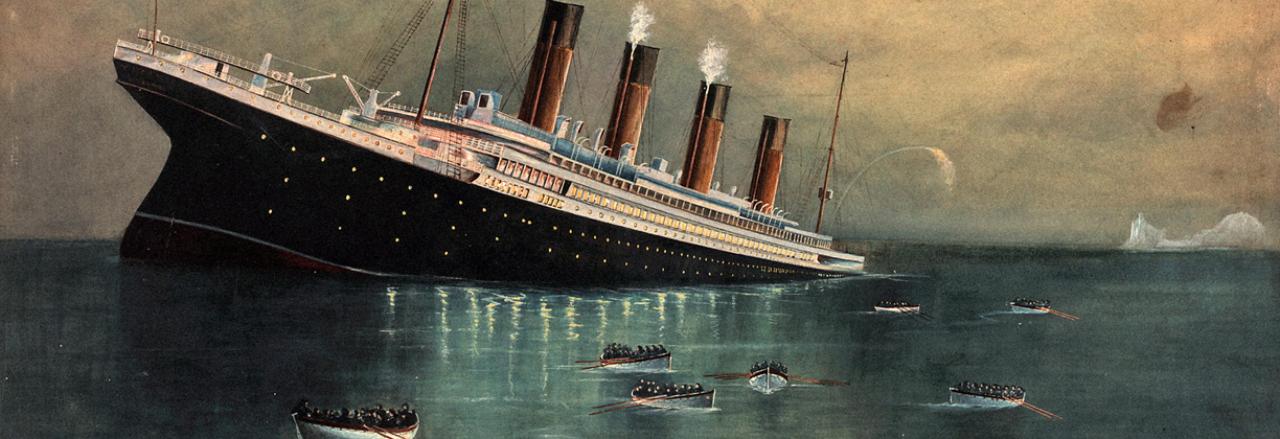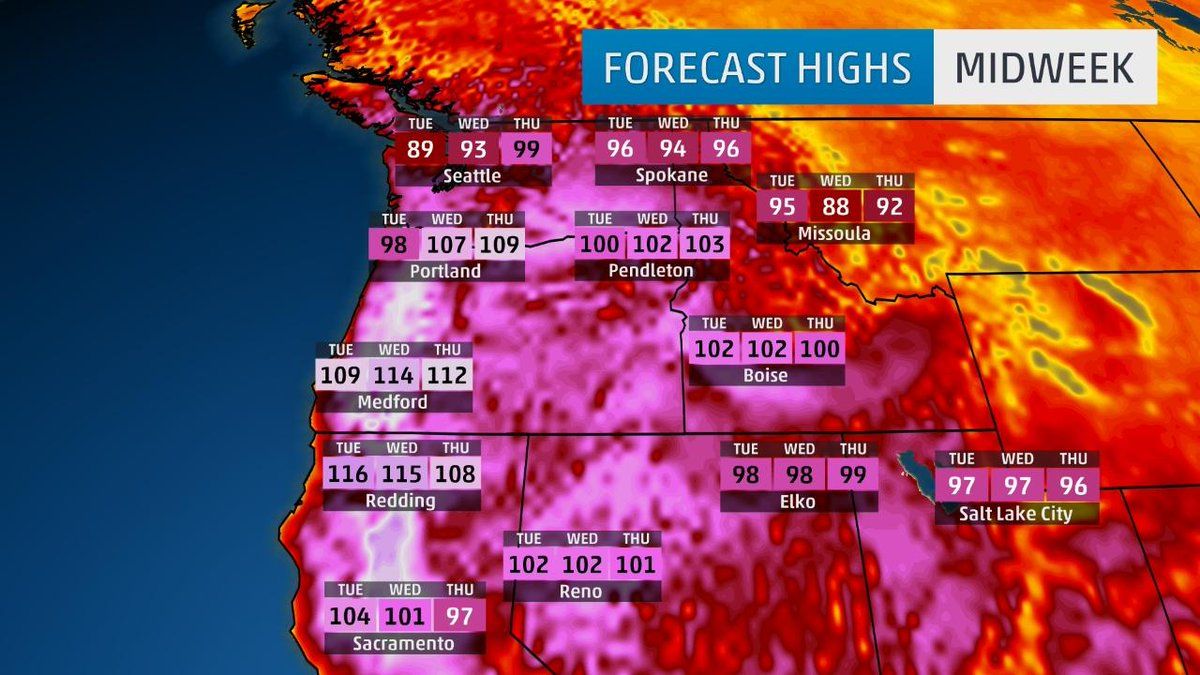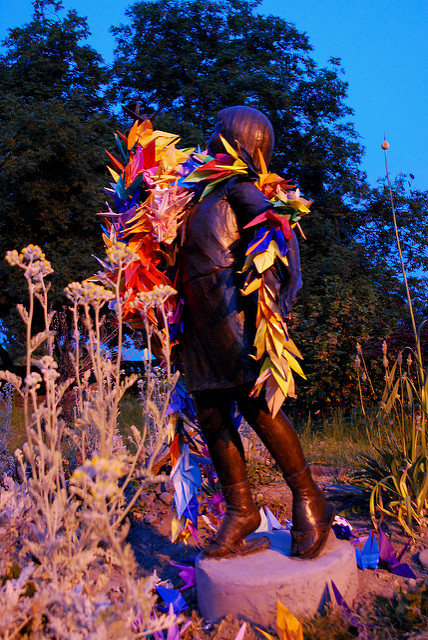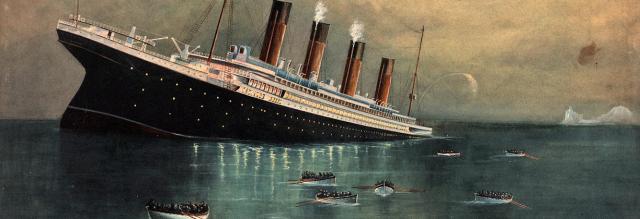
Content notes: Climate change and other natural disasters; grief; anxiety; alcohol; class and privilege.
The Titanic is sinking and I’m standing in line for a Manhattan.
I’m writing this on June 29, 2021, the day after the hottest day in Seattle’s history — so far.
Yesterday was a crisis, and I don’t know how to talk about it. TikTok is a series of bitterly comedic videos about how much the heat sucks; Twitter is a parade of disaster. One feels too casual and the other is hopeless.
Elisa and I spent yesterday moving from place to place in a desperate attempt to find somewhere to keep Eva comfortable, scared that this excessive heat would do her real damage (let alone ourselves.) We started in my sister’s RV, until the midday sun, our laptops, and the heat of two humans and a dog became too much for its AC to handle.
Fuck it, we said. Let’s find a hotel. This is an emergency. Eva was panting like a machine gun, her ears glued back to her skull, pacing around the RV every few minutes before flopping down, then getting up to do it again. She’s an idiot dog: she frequently seems like she forgets that water exists and is picky about drinking from bowls that aren’t hers when she’s out and about. We would touch her brindled black body and I would say hopefully “She doesn’t feel too warm,” as if I could explain to her that she was going to be fine when demonstrably, she was struggling.
We were really just trying to tell ourselves not to panic. You have to. There is a point at which you say, “The iceberg isn’t that big,” ideally not to avoid the problem completely but to keep yourself from freezing up at the enormity of the disaster.
But it was getting bad. So we found a luxury hotel, the Fairmont Olympic in downtown Seattle, the last place in town with any rooms available. We booked one. We went home at 1:30, as the worst heat of the day was starting, packed bags, and headed downtown.

So, okay, abrupt tonal switch here because the hotel was a trip and the literary style is only going to get at half my feelings about it. (Can you tell I didn’t edit this much before posting?)
A security guy outside the back entrance of the hotel tells us that valet parking is “kind of a mess” and suggests we park in the garage across the street. As we turn the corner to approach the main entrance of the hotel we see a line of cars into the street. Kind of a mess indeed. We park in the garage. We grab our stuff, haul it across the street to the front door, and find the lobby.
The lobby is slammed. It appears that every person in Seattle with pets, kids, or elderly family members and the disposable income to book a $450/night room at the last minute has done so, and the line for check-in snakes around the lobby. Elisa gets in line, while I sit with our bags. Eva splays out on the cool marble floor, panting hard, too tired to get up to her usual barking and lunging at other dogs.
While the line trudges past me, I overhear a woman saying that the hotel has overbooked by 20% and has been sending people to another hotel. There are at least twenty people ahead of Elisa in line, as far as I can tell from my position on the other side of the lobby. I text her these deets. We cross our fingers, but I’m already trying to think of contingency plans. And by contingency plans I mainly mean “how long can we stay in this lobby, and how will we survive when we get home?”
How will we survive?
Some time later, Elisa rejoins us and I can tell immediately that we’re screwed. I’ve been texting with my family — my sister has offered again to let us stay in the RV, while my mom is suggesting we look at another hotel — and the decision fatigue is starting to get to both of us. The fatigue and the heat and, like–
Have you ever grieved for people you don’t know? Or for a time? A way of life? Probably you have; I think in 2020 a lot of us experienced intense societal grief. For 600,000 people dead, even if none of them were people we knew; for George Floyd or Breonna Taylor, Tony McDade or Oluwatoyin Salau, Lorenzo Anderson and Summer Taylor; for our own understanding of the world as we were thrown headlong into survival patterns. You might have grieved for Notre Dame Cathedral as it burned, the Amazon rainforest as it burned, Australia, California; the World Trade Center, Pulse Nightclub, Las Vegas, Christchurch; Hurricane Katrina, Fukushima, Indonesia …
I’m making myself sad. I’m sorry if this is making you sad too. I meant to make this a funny, righteously angry post about the white academics we overheard trash talking affirmative action in the hotel lobby, but– Maybe another time. Thanks for being here with me through it.
Anyway. Maybe you’ve heard of climate grief:
Climate grief is related both to changes that have already happened and to changes that are coming, or are in the process of happening. Thus, climate grief often has elements of what the grief theorists call “anticipatory grief” or “transitional grief”. This complicates things. All kinds of grieving can be difficult in our contemporary societies, where an understanding of private or public grieving has long been neglected. But anticipatory grief is always hard. What is truly lost, or will be? When do we grieve those losses – when they begin, or when they end? It is easier to grieve concrete losses that have happened, such as the loss of a certain part of an ecosystem or community. But how does one grieve losses which are ongoing for decades?
Panu Pihkala, “Climate grief: How we mourn a changing planet”
And I’m sitting in this crowded luxury hotel lobby, the most crowded place I have been since March 2020, wearing a mask while most of the people around me aren’t, and my brain can’t settle between the thoughts We will probably all be okay even if we’re uncomfortable and I am so scared for all of us.
A man gets into the check-in line that snakes past our seat. He looks around at the chaos of the lobby and says, in an incredulous half-laughing tone, in an Australian accent, “It’s like we’re on the Titanic!”
I want to say, “Yes, dude, it’s an emergency. We’re refugees.” Elisa tells me later that she wanted to say, “Yeah, and the poor are all going to drown.”
There’s no band, but there is a bar.
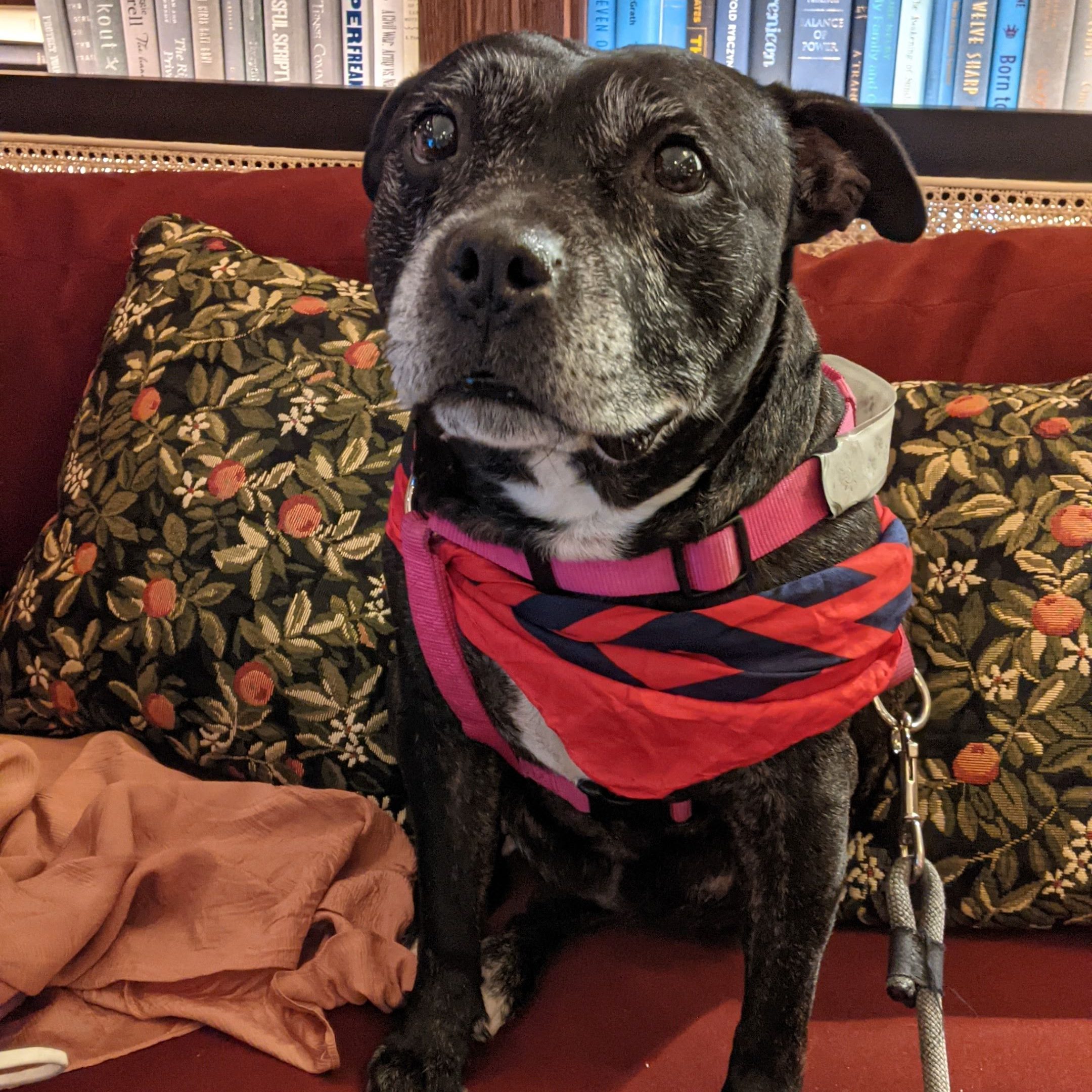
We end up finding a table tucked away in the back corner of the Fairmont Olympic’s lobby. (I honestly would go back under better circumstances just to hang out in the lobby. It’s fancy and spacious and really pleasant to spend time in.) We’ll be there from 3:30 to nearly 8PM. We try to work a little bit.
When it’s 5 o’clock somewhere, which is to say here, I go get in line for a drink at the bar. This line, like the one at check-in — which is still all the way around the edge of the lobby, three hours after we first arrived — spills out of the bar proper and curls around itself. A guy comes up and asks, “Is this the end of the line? For the bar?”
“Yep, this is it.” Wan smile, which he can’t see because I’m wearing a glittery mask.
“This place must specialize in lines!” he says. I think I say, “Huh.”
To be fair to him, it takes almost forty minutes to get through the line, not because it’s particularly long but because there is a single bartender. I’ve seen a handful of waitstaff striding around the lobby. I keep thinking about how I don’t have any cash to tip them with because of the pandemic. I wonder if anyone is tipping them, or the harried valets trying to deal with all the giant cars clogging the front entrance. Why would anyone look at that line of cars and decide “Yeah, I’m gonna make this someone else’s problem”?
Climate change is always someone else’s problem, like, it’s a problem for Newtok but not Seattle, or it’s a problem for unhoused neighbors but we have a home, or it’s a problem for (and of) the corporations and governments but we’re individuals. These Somebody Else’s Problem Fields have varying levels of validity, insofar as individual action can’t be the solution for climate change, or eroding land in Alaska isn’t really something a Seattlite can directly affect.
But the housing and homelessness crises have always been our problems. And all of this is going to continue to be our problem. And all of us in this lobby are so fucking lucky because all of us had at least $450 we were ready and able to spend on an emergency stay at a luxury fucking hotel, and yet, we are all stranded, and yet we are still going to be fine, probably.
I know, with great and numbing certainty, that we’ll probably be fine, and that somewhere in Seattle, a business owner is shooing a homeless person out of the shade of their entryway and into 110℉ heat, and that person will probably not be fine. Hell, some of the babes in arms in this room, whose parents can’t get a room because Booking.com lied to them in an algorithmic effort to make more money, may have to go back to their baking hot homes, and may not be fine.
The Titanic is sinking.
I’m trying not to cry.
The guy behind me is joined by someone that I assume is his wife. “I’ve been in this line since before I called you about the parking situation!” he tells her, in the voice of someone who sounds ready to leave a bare-minimum tip and complain to his friends about the atrocious service.
Maybe that’s not fair. Maybe he’s feeling the same horror and hopelessness I am and expressed it as a disbelieving comment on the length of the wait, to highlight how unbelievable the whole situation is. But all I can think is If he says anything disparaging about the staff I might punch him.
Behind us a young couple with a fluffy dog and a baby in a stroller are looking around the room in hopeless exhaustion, unable to find someplace they can sit down. “I saw a woman taking up space for five people,” the mother with the dog says.
I don’t know what to do.
I order a Manhattan.
It’s really good.
I reach out to friends. They are instantly, effusively ready to shelter us. We make arrangements. Eva and Elisa will crash in an air-conditioned room; I’ll have the apartment to myself and can cool it down without also worrying about the dog.
We’re going to be okay.
When we get back to the apartment to re-pack we discover that the freezer has somehow been left open since the afternoon. The paletas we bought last Friday are goo.
On the drive over to drop off Elisa and Eva, I muse, “I really ought to be journaling about this. I keep thinking — The Titanic is sinking and all I want is a Manhattan,” and then I start to cry.
“To my poor fellow-sufferers: My heart overflows with grief for you all and is laden with sorrow that you are weighed down with this terrible burden that has been thrust upon us. May God be with us and comfort us all.”
-Eleanor Smith, wife of the late Captain Smith of the RMS Titanic
Thank you for reading, and thank you to everyone who helped us or offered help to us yesterday: Regina and Deke, Chase and Kristen, Jéhan, our parents, the hardworking Fairmont Olympia staff.
Again, I want to be clear: as stories of riding out the heat wave go, ours represents one of privilege. We had a lot of help and a lot of resources. And it was still exhausting and scary in a very real way. For people who don’t have the resources we had, it was undoubtedly worse, and this will not be the last time an environmental crisis affects our, or your, community.
If you’re in Seattle and would like to help people most likely to be affected by crises like this, please consider donating to:
- A Single Spark: https://twitter.com/SingleSparkSEA
- 350 Seattle: https://350seattle.org/
- Farmworker Justice: https://www.farmworkerjustice.org/
- United Farmworkers: https://ufw.org/
- The Downtown Emergency Services Center: https://www.desc.org/
And please feel free to comment with information about help in your network.
Thanks for reading, and take care. 💙
